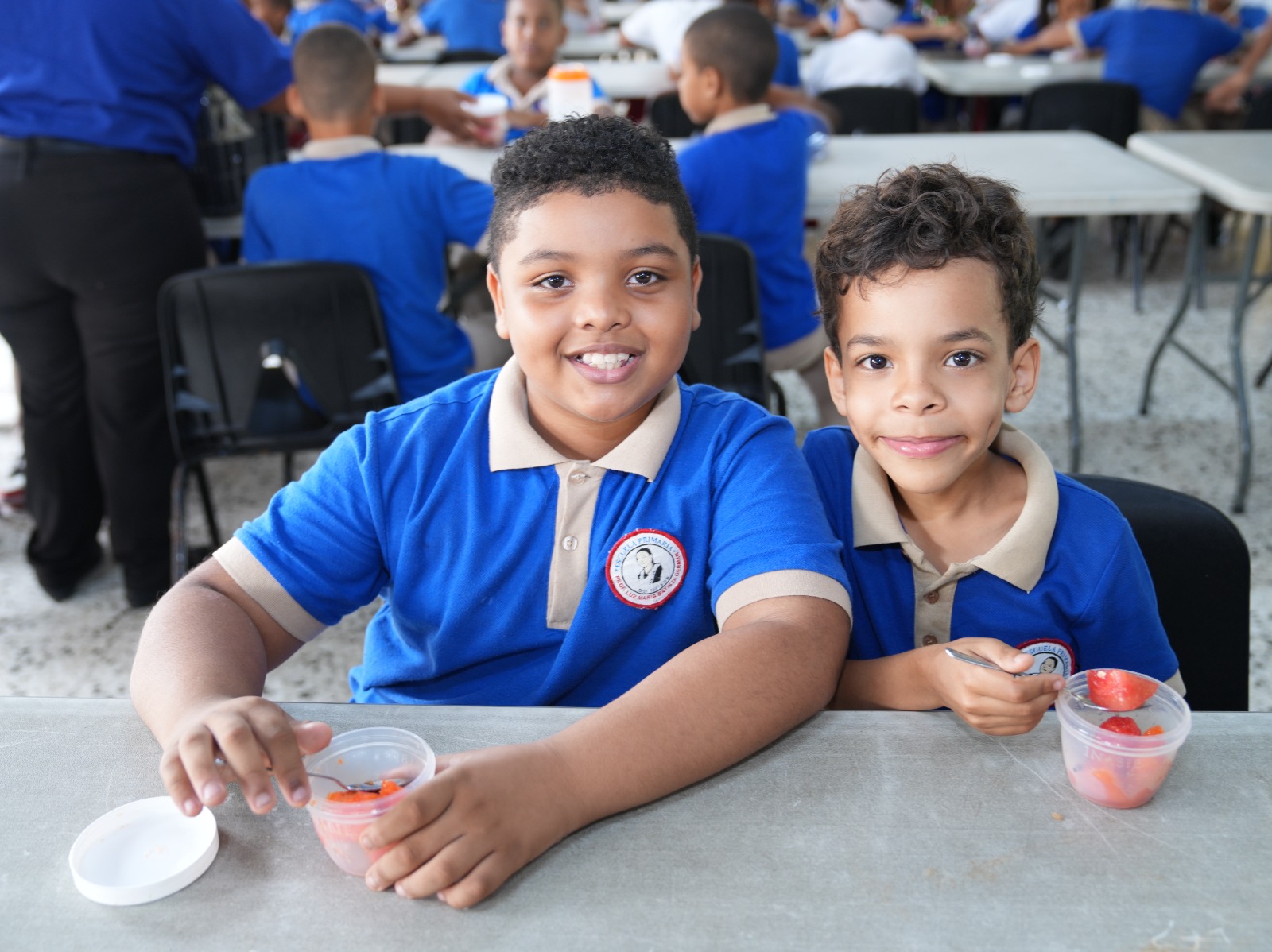In view of the serious health risks posed by high sugar consumption from childhood, the Dominican Republic has adopted a measure over the past two school years aimed at reducing the intake of around 18 million pounds of this product by eliminating sugary nectars that were served daily in school meals to more than 1.4 million students.
The measure was adopted by the National Institute of Student Welfare (INABIE, by its acronym in Spanish) after the new administration received reports on the incidence of increased rates of overweight and obesity from these beverages used to complement lunch in schools. “Since we arrived at this institution, the elimination of nectar was one of the main measures we took.
This was due to the high rate of overweight and obesity determined in a study conducted jointly with Public Health, which was 31.2%, and the negative consequences of excess sugar for health,” explained Víctor Castro, executive director of INABIE.
The nectars were served in 200 milliliter packages containing an average of 20 to 23 grams of sugar. In other words, in just one drink per day, students were consuming amounts close to the limit allowed for 24 hours by the World Health Organization (WHO), which ideally is around 25 grams of sugar for a child consuming an average of 2000 calories per day.
After implementing the measure in 2022, it was projected that by the end of the current school year, students would receive 405.8 million nectars with an estimated total sugar content of 8,116 million grams, representing the 18 million pounds of this product that will have been reduced by June 2024.
Castro highlighted that in substitution for these nectars, a project of including fresh fruits was initiated, which already has been successful in its distribution in schools in two provinces of the country and is expected to be expanded to more than 5,000 educational centers nationwide.
“With the inclusion of fruits, we are aiming to provide students with healthier foods, besides being the only food group missing in school meals,” emphasized Castro.
The decision was made based on recommendations from INABIE specialists due to the “pandemic” represented by overweight and obesity today and its direct relation to non-communicable chronic diseases such as diabetes, hypertension, coronary diseases, some types of cancer, among others.
Currently, the Dominican Republic maintains leadership in the Caribbean region in terms of coverage of the School Feeding Program (SFP), representing one of the most effective tools to combat malnutrition, providing healthier nutrition and nutritional education.
Content sent by the INABIE for publication in the RAES.
https://inabie.gob.do/component/content/article/dia-mundial-de-la-obesidad-inabie-camina-hacia-la-reduccion-de-18-millones-de-libras-de-azucar-en-alimentacion-escolar?catid=8&Itemid=103



